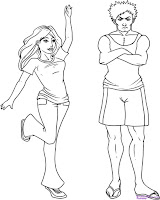Economic liberalism triggers a socio-economic system based mainly on financial speculation jointly with inappropriate economic measures and structural/social reforms. Let’s take Euro area as an example. The EU implemented painful austerity measures in order to reduce the high level of government debt in many country members. But it was, and still is, a wrongly-conceived austerity
There are many ‘enterprises and entrepreneurs’ arising from political clientelism (crony-ism and patronage), and those kind of enterprises and entrepreneurs do not generate wealth and prosperity in our societies because they are not competitive. This kind of capitalism is deeply disappointing for the real entrepreneurial spirit (genuine enterprises).
In this way, wealth, well-being and prosperity are being concentrated in the hands of a few and the income gap between a country's richest and poorest people enlarges dramatically. “Obviously, this way of capitalism is inherent to political corruption and prevents equal opportunities in the economic and social spheres.”
 Although somehow hidden, ownership nevertheless matters in all the above described topics. There are different approaches to ownership of a property. The question is whether all of them are sustainable for the advancement of a society as a whole?
Although somehow hidden, ownership nevertheless matters in all the above described topics. There are different approaches to ownership of a property. The question is whether all of them are sustainable for the advancement of a society as a whole?Let’s define different ownerships and their (potential) effects.
‘Personal ownership’ is where assets and property is belonging to an individual, also known as individual ownership. Contrary, the ‘collective ownership’ assets and property belongs to a collective body of people who control their use and collect the proceeds of their operation. Very similar is ‘common ownership’ (or non-ownership) where assets and property are held in common by all members of society. Any country owns property (‘state ownership’) where assets are state owned or owned by certain state agency consequently having jurisdiction over in terms of use. And finally, assets owned by a government or a state and available for public use to all their constituents are called ‘public property’.












































